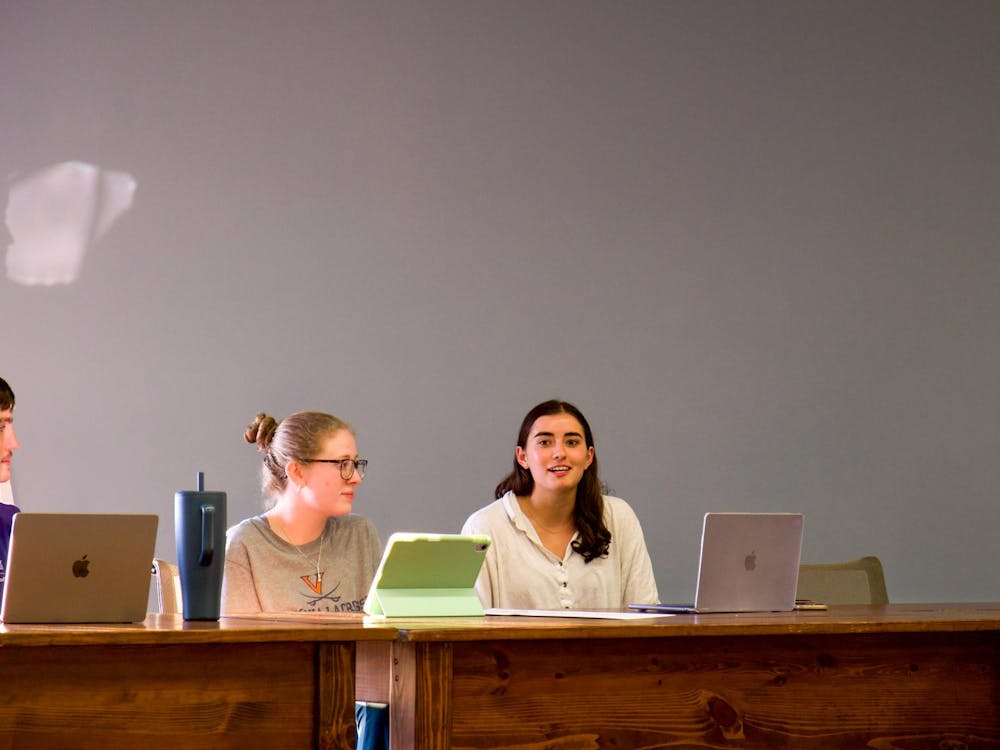There were 521 students on a waiting list for Spanish 201 last semester, according to Ricardo Padron, Faculty Senate chair and associate professor in the department of Spanish, Italian and Portuguese. Padron added that he would love to offer Spanish classes to every student wanting to take the course; unfortunately, there was not enough room. This was one of the topics raised last night by University faculty, administrators and students at the first Commission on the University's Present, hosted by Student Council.
The majority of those 521 students were College students, along with a few Engineering students, Assoc. Engineering Dean P. Paxton Marshall said. Although the Engineering School had paid for an extra section of Spanish in the College, the class ended up with fewer Engineering students than originally desired, Marshall said. The department, however, had to choose College students who needed to fulfill their foreign language requirement, Padron said.
"We'd love to offer Spanish to everyone who wants to study Spanish," Padron said. "We need to develop Spanish programs that are in-between size and function of current English programs and current foreign language programs."
The problem also might stem from a poor student-faculty ratio, other University administrators said.
Assoc. College Dean Richard Handler said the University's student-faculty ratio has worsened since 1990 because the University lacks the necessary resources to hire new faculty. As a result, students struggle when trying to enroll in courses.
"I don't know how to fix it," Handler said. "One of the unique things about U.Va. is it's both large and small. It's a very large university to get that good of an education. We're ... big compared to liberal arts places. Both students and faculty alike are incredibly committed ... but we can't give you all those small classes you like."
Justin Thompson, assistant provost for academic planning and development, said Provost Arthur Garson is concerned about the student-faculty ratio and has met with school deans to discuss the issue.
In addition to the student-faculty ratio concern, faculty stressed last night that they would like to see more engagement between students and faculty members at the University.
"Engagement can become a problem at a place as big and buzzing as U.Va.," Padron said. "Education is a matter of being curious, working hard, pursuing opportunity, opening your mind to things that are unfamiliar -- and that might seem intimidating -- and to engage honestly with the people who are trying to teach you this."
Engineering Dean James Aylor noted that the University is always seeking ways to increase engagement between students and faculty and actively encourages students to meet with their professors.
"Don't be intimidated by faculty," Aylor said. "Most of the faculty do want to engage with you."
Leonard Sandridge, executive vice president and chief operating officer, echoed Padron's and Aylor's sentiments.
"One of the things that I believe vehemently is that we not lose sight of those core functions of the educational process," Sandridge said, noting that student-faculty engagement is something worth emphasizing.
Sandridge also said scholarships are another area in which the University can improve, responding to a question first-year College student Neal Fox asked about possibly increasing the number of available merit-based scholarships.
Sandridge said merit-based financial aid at the University "has not been that great," adding that because the commonwealth will not give money to the University for merit scholarships, money for these scholarships must come from private funds.
While much of the evening's discussion focused on problems that the University is currently addressing or hopes to address, Sandridge also discussed progress that has already been made to ensure the University community's safety after the Virginia Tech shootings last year. Sandridge noted that the University has increased its efforts to communicate with students and faculty by creating a text-message-alert system and an e-mail alert system.
Previously, he said, it would have taken the University several hours to reach the 52,000 members of the University community. Under the new system, University administrators can reach that population in a mere 30 minutes, Sandridge said. The University has also installed more cameras and plans to install a public announcement and alarm system in six exterior University locations, Sandridge said.
University students can expect to have another opportunity in the future to address issues such as those addressed last night; the Commission, according to Marisa Roman, Council academic affairs committee co-chair, is expected to be an annual event that provides an environment where students and faculty can discuss and express concerns about the University's current issues and goals.






